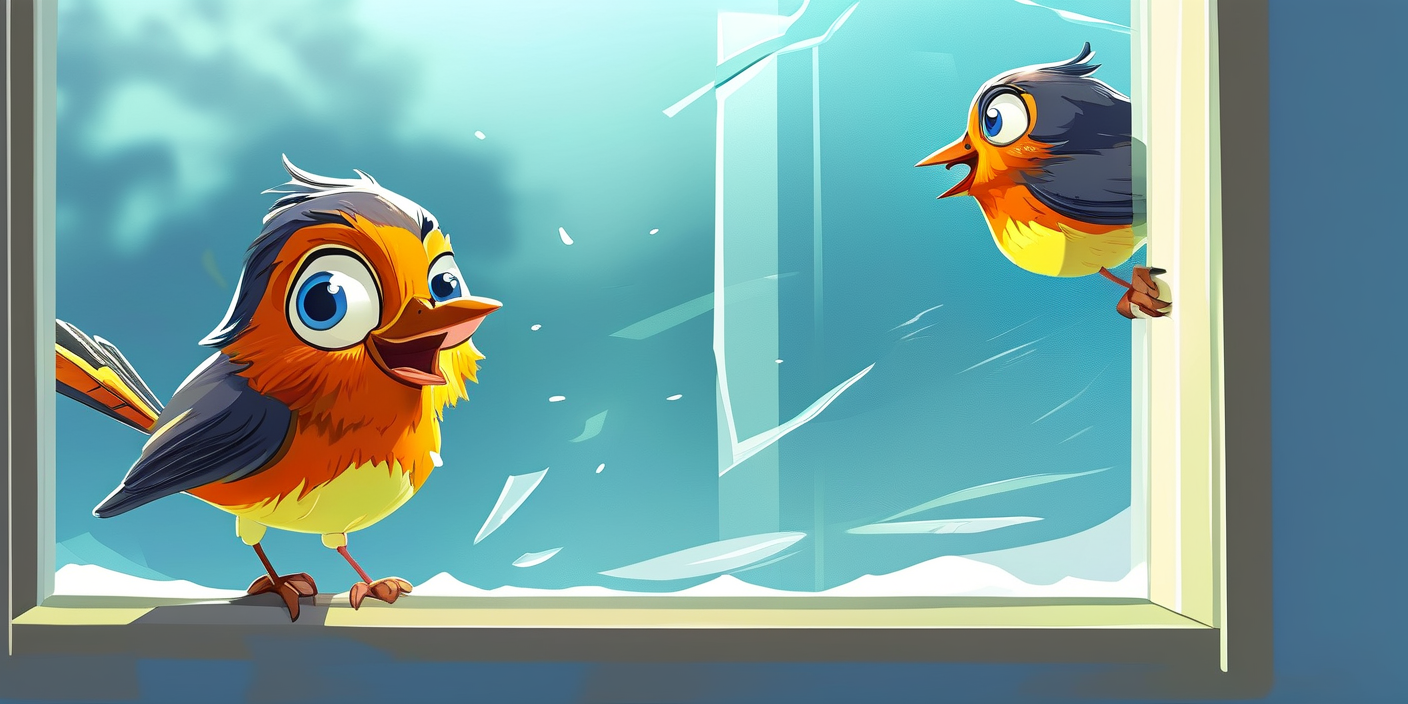Understanding Bird Window Collisions
Seeing a bird strike your window can be alarming. It’s a jarring event, often leaving you wondering about the bird’s fate and the underlying cause. While sometimes the impact is harmless, other times it can result in serious injury or death. Understanding why birds hit windows is the first step towards preventing these unfortunate incidents and protecting our avian neighbors.
Why Do Birds Hit Windows?
The primary reason for bird window collisions is a simple, yet often overlooked, one: reflection. Birds see the reflection of the sky or vegetation in the glass, perceiving it as a clear flight path. They don’t recognize the glass as a solid barrier, leading to a devastating collision. This is particularly problematic with large, reflective windows, especially those located near trees or other natural habitats.
Other contributing factors include:
- Attraction to reflections: Birds may be drawn to their own reflection, mistaking it for a rival or potential mate.
- High-speed flight: Birds flying at high speeds have less time to react and avoid obstacles.
- Poor visibility: In low-light conditions or during inclement weather, birds may have difficulty seeing the window.
- Habitat proximity: Windows located near gardens, feeders, or other areas attracting birds increase the likelihood of collisions.
- Building design: Certain building designs, such as long stretches of uninterrupted glass, create more dangerous environments for birds.
The Impact of Bird Window Collisions
The consequences of a bird hitting a window can range from minor to severe. A slight bump might leave the bird unharmed, allowing it to fly away after a brief moment of disorientation. However, more forceful collisions can result in:
Potential Injuries and Outcomes
- Concussions: Brain injuries are a common and potentially fatal outcome of bird window collisions.
- Broken bones: Impacts can cause fractures in wings, legs, or other bones.
- Internal bleeding: Internal injuries can lead to significant blood loss and death.
- Shock: The trauma of the impact can cause shock, weakening the bird and making it vulnerable to predators or starvation.
- Death: Sadly, many birds die as a direct result of window collisions.
The severity of the injury depends on several factors, including the size and species of the bird, the speed of impact, and the type of glass.
Preventing Bird Window Collisions: Practical Solutions
Fortunately, there are many effective ways to prevent birds from hitting your windows. These solutions range from simple and inexpensive to more complex and costly, depending on your needs and budget.
Effective Prevention Strategies
- Window decals and stickers: Applying bird-friendly decals, stickers, or patterns to your windows breaks up the reflection and makes the glass more visible to birds. These are readily available online and in many pet stores.
- Window films: Special films designed to reduce reflections and make windows more visible to birds are a more permanent solution. They are available in various patterns and levels of transparency.
- External netting or screens: Installing netting or screens outside your windows can create a physical barrier, preventing birds from approaching the glass in the first place.
- Window shades or blinds: Keeping blinds or shades drawn, particularly during peak bird activity hours, can help reduce reflections and make the windows less attractive to birds.
- Planting vegetation: Planting shrubs or trees near your windows can create a natural barrier and divert birds away from the glass.
- Reduce lighting at night: Artificial lights can attract birds at night, increasing the risk of collisions. Minimizing outdoor lighting can significantly reduce this risk.
What to Do If You Find an Injured Bird
If you find a bird that has hit your window, it’s crucial to act quickly and carefully. Do not attempt to handle the bird unless you are experienced in wildlife rehabilitation.
Helping an Injured Bird
- Assess the situation: Observe the bird from a safe distance to determine the severity of its injuries.
- Provide shelter: If the bird is injured, gently place it in a dark, quiet box lined with soft material.
- Contact a wildlife rehabilitator: Locate a local wildlife rehabilitator or animal rescue organization. They have the expertise to provide proper care and treatment for the injured bird.
- Do not feed or give water: Well-meaning attempts to feed or water an injured bird can be harmful.
- Keep pets away: Ensure that your pets are kept away from the injured bird to prevent further stress or injury.
Final Thoughts
Bird window collisions are a significant problem, but with awareness and proactive measures, we can significantly reduce their occurrence. By understanding the reasons behind these collisions and implementing appropriate preventative strategies, we can create safer environments for birds and contribute to their conservation. Remember, even small actions can make a big difference in protecting our feathered friends.

